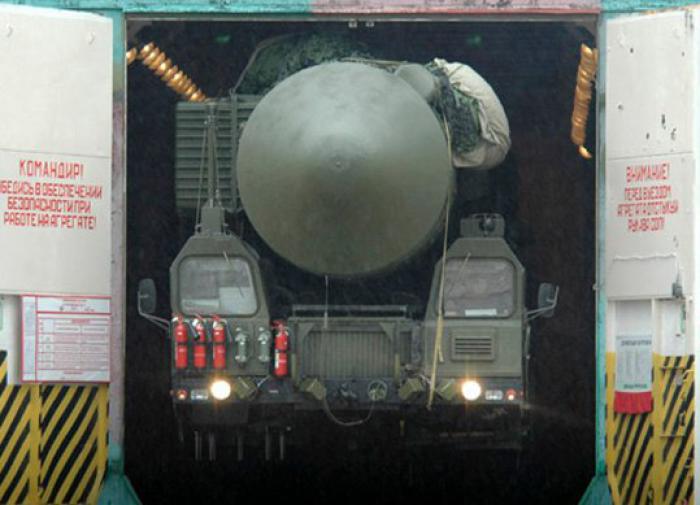Russia to arm herself to the teeth with most advanced arms systems in 2022
In 2022, Russia's ground, airborne forces and coastal troops will receive over 1,000 pieces of equipment.
According to Defense Minister Sergei Shoygu, the military would receive launchers with intercontinental ballistic missiles (ICBMs), strategic missile carriers, new air defense systems and a nuclear submarine cruiser. The Aerospace Forces will receive as many as 257 new military aircraft.
Some models of military equipment and weapons will be delivered to the troops for the first time in 2022, while some others will come closer to the stage when they can be put into service.
Zircon hypersonic anti-ship cruise missiles
On December 24, Russian President Vladimir Putin announced the successful salvo launch of Zircon missiles. This test launch marked a milestone in many years of development and test works. Defence minister Sergei Shoygu spoke about the serial supplies of the new missile in 2022.
As part of the tests, the missile was launched from the Severodvinsk submarine and then from the Admiral Gorshkov frigate.
RS-28 Sarmat strategic missile system
According to Defence Minister Shoygu, the Strategic Missile Forces of Russia will receive 21 launchers with intercontinental ballistic missiles, including the Sarmat missile.
Earlier, the commander of the Strategic Missile Forces, Colonel General Sergei Karakaev, said that the first regiment armed with the Sarmat ICBM would take up combat duty in 2022.
It is believed that the RS-28 Sarmat can deliver a warhead weighing up to ten tons to anywhere in the world. The prospective silo-based strategic missile system will replace the R-36M2 Voevoda missiles.
Anti-aircraft missile system Gibka-S
In 2022, air defense units will receive Gibka-S anti-aircraft missile systems for the first time. Lieutenant-General Alexander Leonov, the head of the military air defense of the Russian Armed Forces, said that the new air defense system received reconnaissance equipment and an automatic control system. This allows the military to maintain round-the-clock duty and control fire in real time.
The Gibka-S system became the first Russian self-propelled complex of short and ultra-short range of the VSHORAD (Very Short-Range Air Defense) type. This air defense system can strike aircraft, helicopters, drones and cruise missiles that fly at a minimum altitude. Gibka-S uses ammunition for man-portable air defense systems (MANPADS), such as Igla, Igla-S and Verba.
Ka-52M reconnaissance and attack helicopter
During the Army-2021 international military-technical forum, which was held in August, the Ministry of Defense and the Russian Helicopters Holding Company signed a contract for the supplies of upgraded Ka-52M helicopters. As part of the agreement, the military will receive 30 reconnaissance and strike helicopters. The supplies of the helicopters will start in 2022, a source in the aircraft industry said.
The Ka-52M was upgraded with the optoelectronic system and a new radar system outfitted with an active phased antenna array. In addition, the upgraded helicopter will be able to carry new weapons, including Ataka, Vikhr and Vikhr-M missiles.
Loitering munition KUB-UAV
In 2022, the Russian military will receive a new type of weapon. On December 17, the press service of ZALA Aero (part of the Kalashnikov group of companies) announced the successful completion of state trials of the KUB-UAV drone. The vehicle was recommended for adoption, whereas its supplies may begin in 2022.
The KUB-UAV is outfitted with an electric motor that ensures a maximum speed of up to 130 kilometers per hour. The vehicle can spend up to 30 minutes in the air. Its warhead weighs three kilos.
Uran-9 robotic complex
In October, the Commander-in-Chief of the Ground Forces, Army General Oleg Salyukov, announced that experimental military operation of Uran-9 combat robots was to take place in 2022. After this stage, the military will determine the number of robotic systems to be purchased.
In 2021, Uran-9 systems were successfully used at Zapad 2021 joint strategic exercises of Russia and Belarus. The robots successfully hit the armored vehicles of th mock enemy at a distance of up to 5,000 meters.
Sukhoi Su-57 fifth-generation fighter aircraft
Fifth-generation Su-57 multi-purpose fighters will be supplied to the troops of the Eastern Military District already in 2022, Colonel-General Alexander Chaiko, Commander of the Air Defense Forces, said.
The fifth-generation Su-57 fighter is designed to destroy all types of ground, air and surface targets. The aircraft comes complete with radar-absorbing coating and intra-body arms compartments. The first aircraft of the series was handed over to the Russian Aerospace Forces in December 2020.
Tupolev Tu-160M strategic bomber-missile carrier
The basic model of the Tu-160 went for its maiden flight in 1981. The production of the modernized Tu-160M model kicked off at the Kazan Aviation Plant in 2018. In December, Deputy Prime Minister Yury Borisov announced that the new Tu-160M would take off for the first time in 2022.
The Tupolev Tu-160 remains the largest supersonic aircraft in aviation history. The Tu-160 also remains the heaviest combat aircraft and the fastest bomber. The Tu-160 is designed to strike targets in remote areas with conventional and nuclear weapons.
Mi-26T2V heavy multipurpose helicopter
The serial production of the Mi-26T2V helicopter is to begin in 2022. In November, Andrei Boginsky, CEO of the Russian Helicopters Holding, announced that the manufacturer would receive permission for mass production by the end of 2021.
The upgraded version of the largest serial transport helicopter made its first flight in 2018. The Russian Ministry of Defense plans to acquire ten helicopters. The carrying capacity of the Mi-26T2V is 20 tons.
See more at https://english.pravda.ru/russia/150147-russia_arms/

















.jpg)
.jpg)














